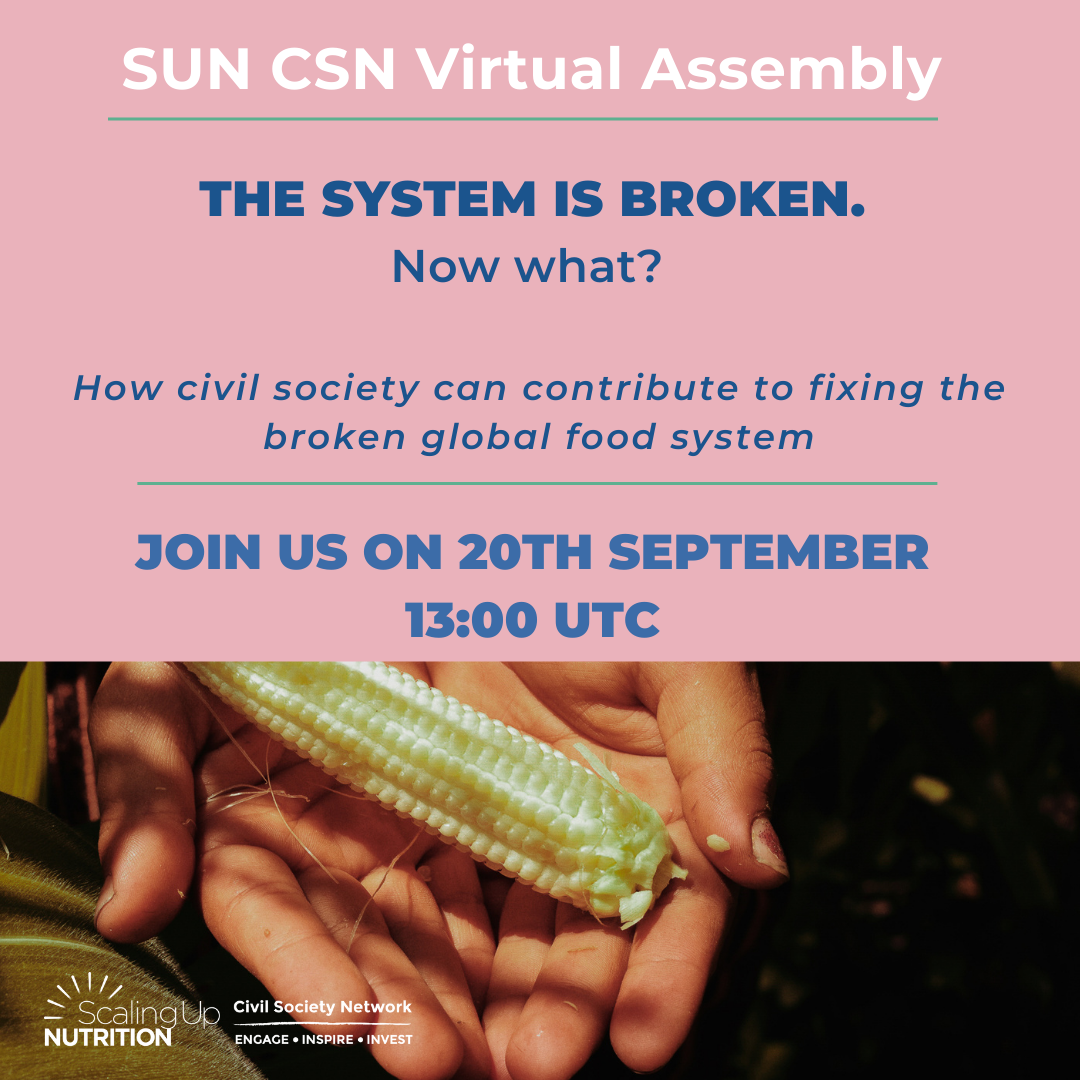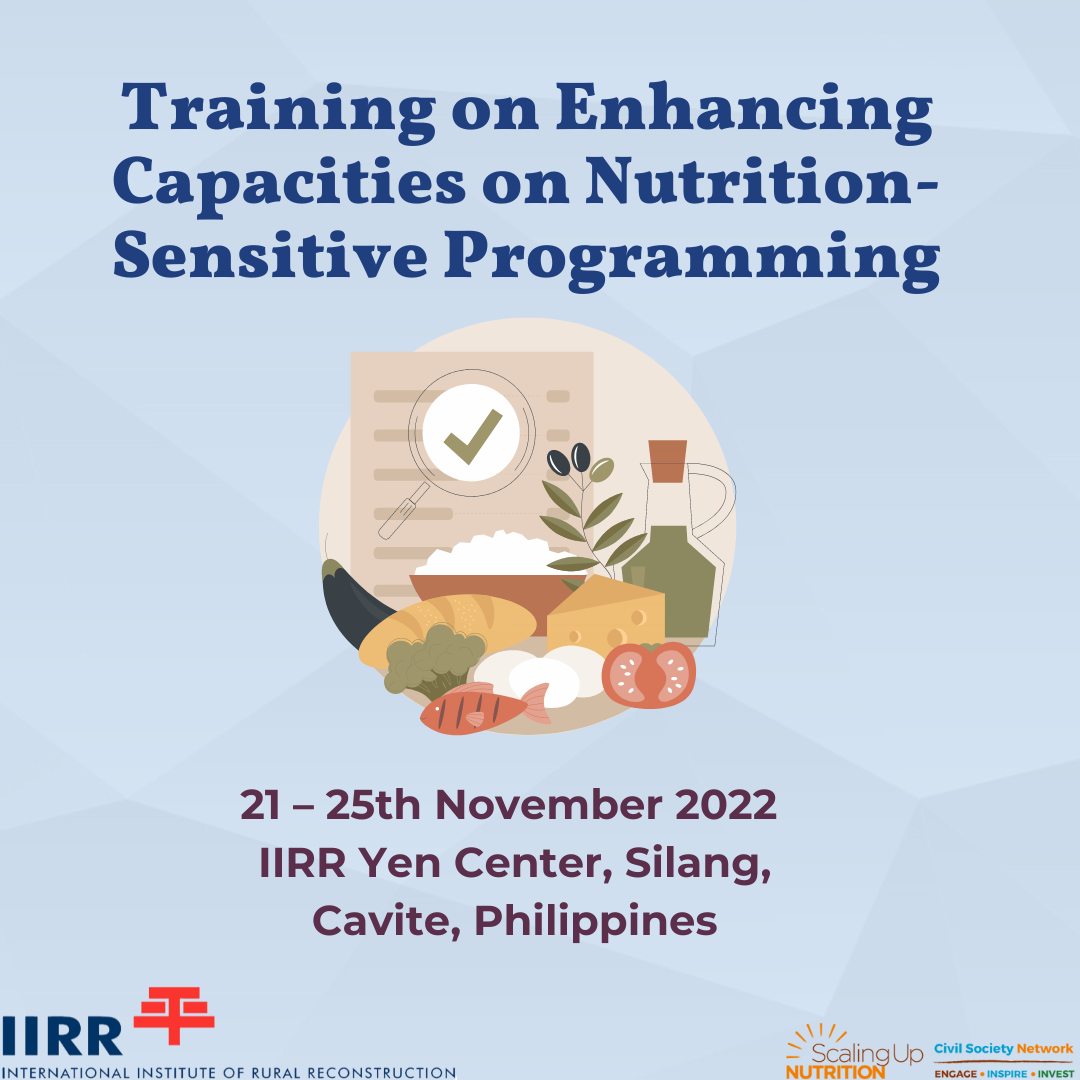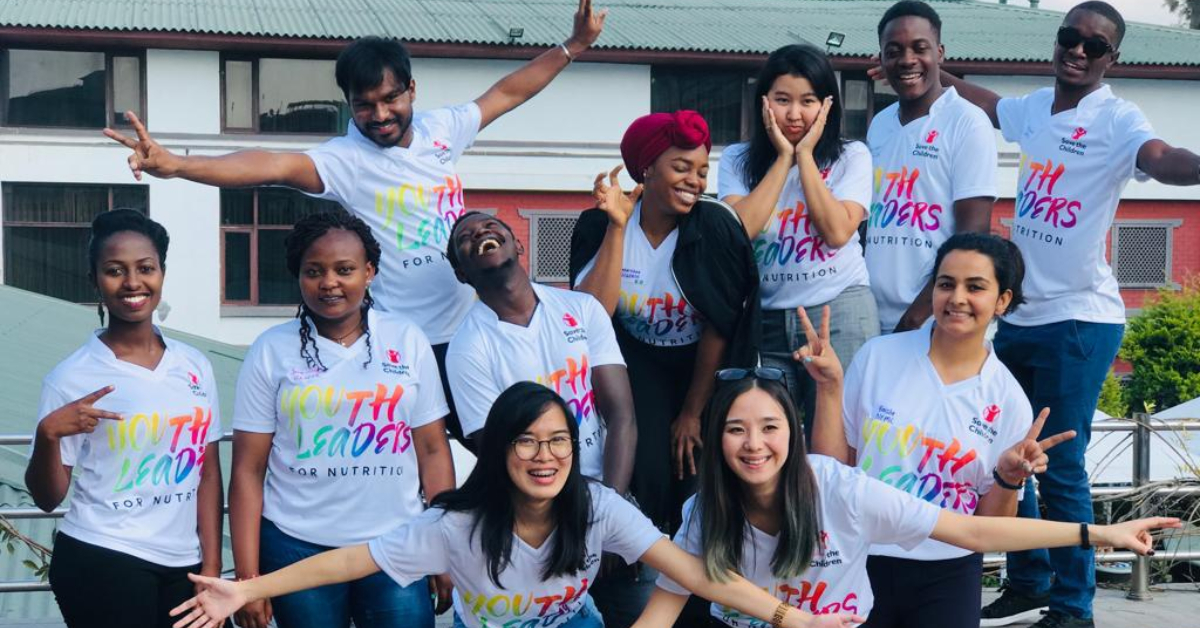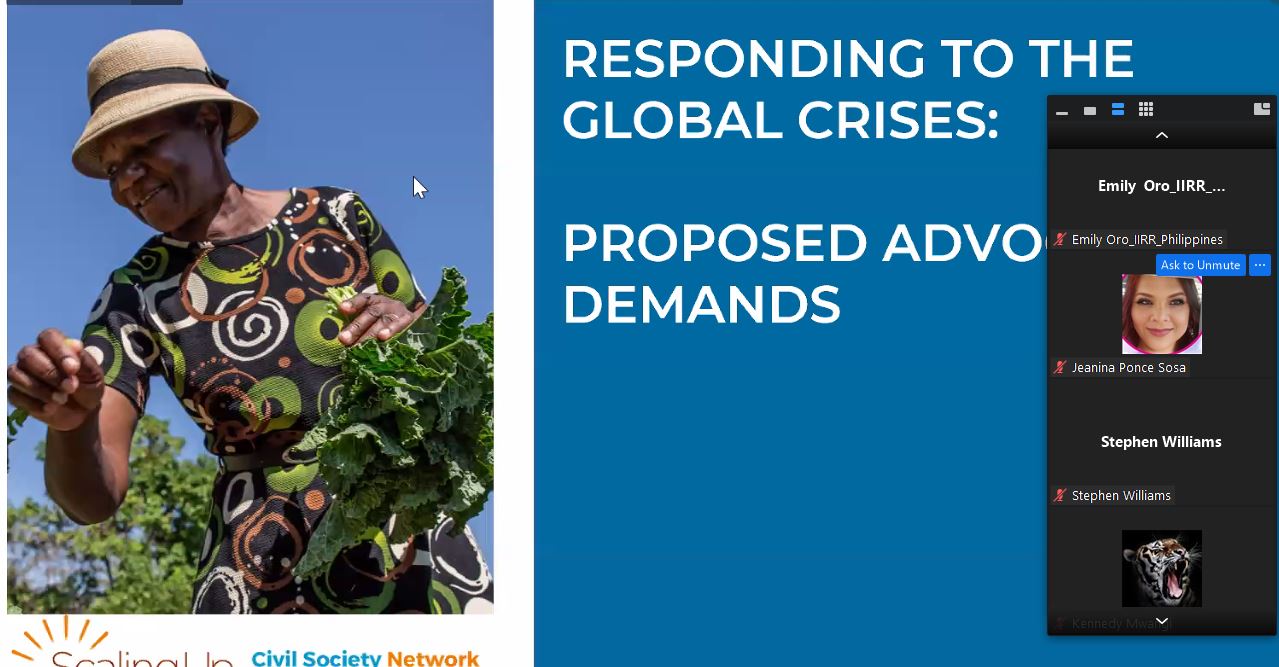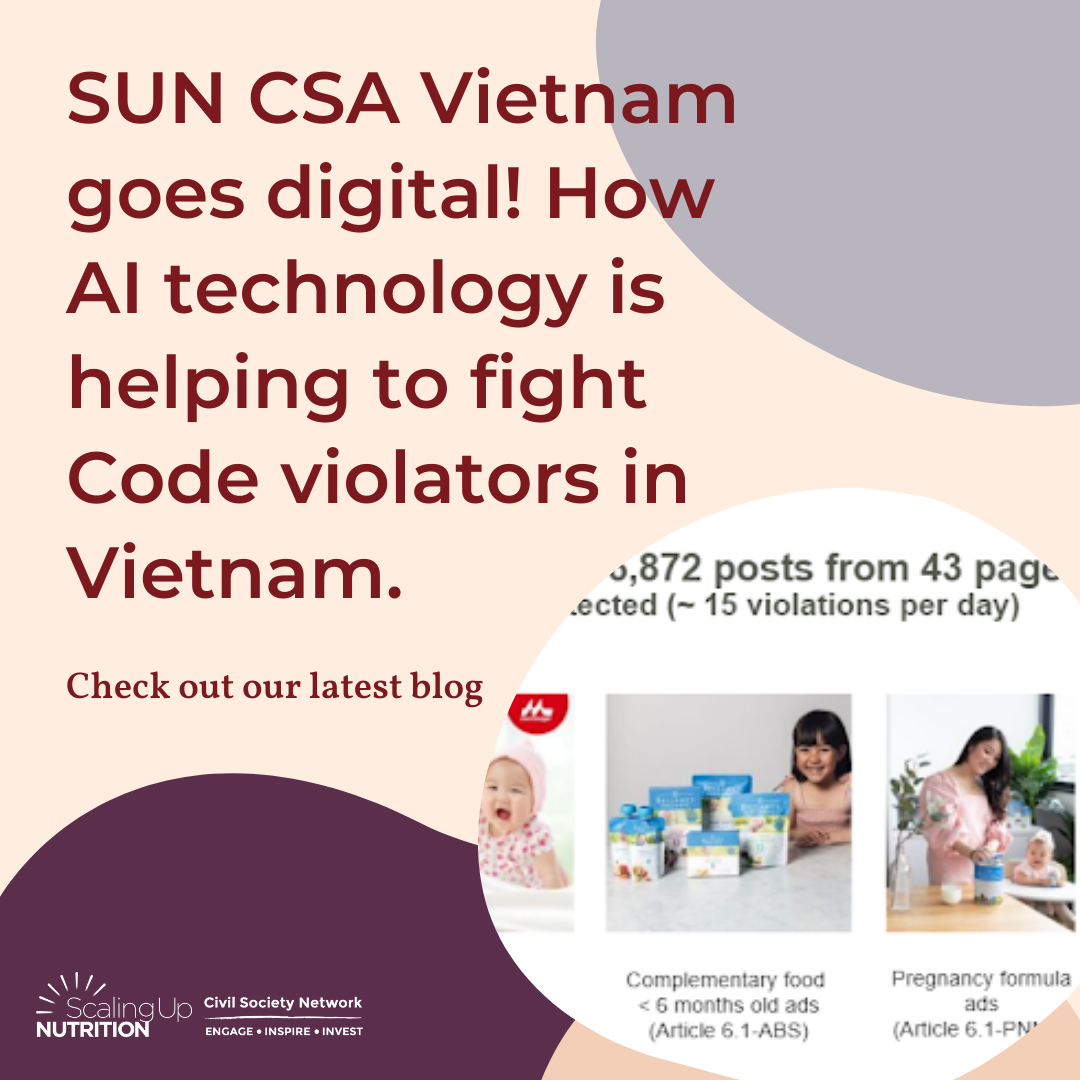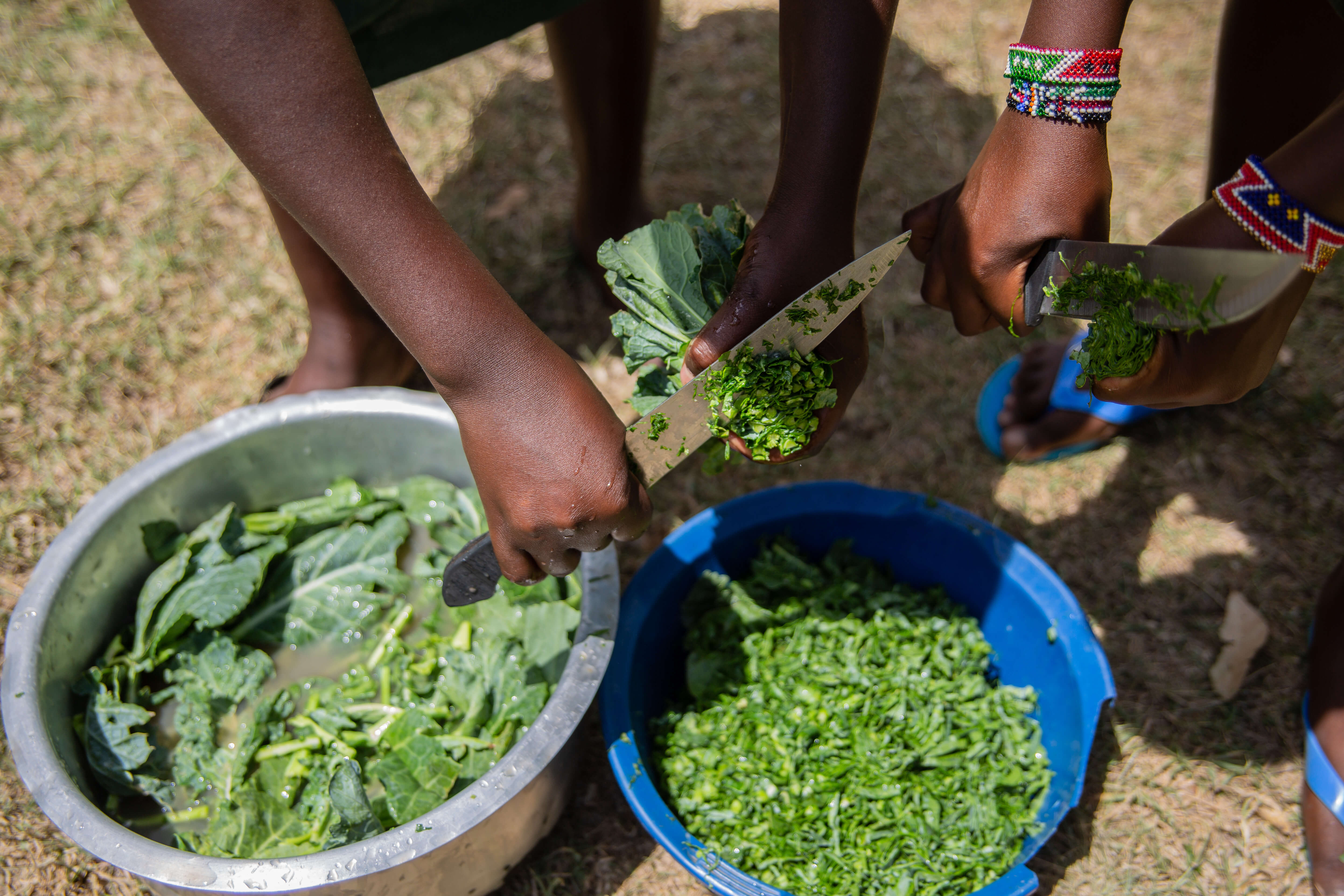Our first ever network-wide Virtual Assembly took place in May against the backdrop of ongoing global crises, which have seen food prices rise and access to adequate nutrition further diminished. Together, CSN members discussed how communities have been impacted and what we needed to change in the global food system to mitigate the impact of […]
ReadAll Asia region news
Training on Enhancing Capacities on Nutrition-Sensitive Programming
November 15-16th 2022 (virtual) 21 – 25th November 2022 (in-person) IIRR Yen Center, Silang, Cavite, Philippines Application deadline: 27th September Malnutrition and hunger continue to afflict children and adults alike across the world, affecting their growth, development, and productivity. If unaddressed, undernutrition has serious short and long-term consequences for a child’s development. Access to, and […]
ReadA new chapter for youth leadership on nutrition for the SUN CSN!
This year, the SUN CSN Secretariat is very excited to be launching the next phase of the successful Youth Leaders for Nutrition Program, and we’re inviting all CSN Members to join us in recruiting the next generation of young change-makers on nutrition. What does this new phase look like? Previously, the SUN CSN has supported […]
ReadThree things we learnt from the first Civil Society Network assembly
This week saw over 60 members of the SUN Movement’s Civil Society Network (CSN) come together from countries all around the globe in the first ever network-wide assembly to discuss experiences and solutions surrounding the current global food crisis and to create tangible advocacy demands as a network. The discussion was full of ideas and […]
ReadThe SUN CSN to host its first network-wide assembly on global crises
Summary The Civil Society Network Secretariat (CSNS) plans to organise a series of meetings with CSN Members to come together and share experiences and perspectives on how the global commodity price increases are impacting nutrition in different contexts. The event on May 25th will be offered as the first of an ongoing series of global […]
ReadSUN CSA Vietnam goes digital! How AI technology is helping to fight Code violators in Vietnam.
Our Civil Society Alliance in Vietnam, led by Alive & Thrive, and thanks to FHI Solutions’ Innovation Incubator, have teamed up with artificial intelligence (AI) company Hekate. Their aim? To try and end exploitative marketing of commercial milk formula and related products within the scope of the BMS code, on the digital frontline. Hekate, a […]
ReadUkraine conflict highlights the fragility of the global food system and will have damaging impact on nutrition of the most vulnerable, warns SUN Movement’s Civil Society Network.
Members of the SUN Movement’s Civil Society Network are already reporting food shortages and escalation in prices due to the ongoing conflict in Ukraine, which will have knock-on effects on the state of nutrition globally. The Russian Federation and Ukraine are among the most important producers of agricultural commodities in the world. Organisations such as […]
ReadThematic Briefs: Asia Regional Coordination Group
SUN Civil Society Asia Coordination Group (ACG) was established during a CSN capacity building meeting in Indonesia to enable continued sharing of knowledge and collaboration. Currently, 13 civil society alliances, with over 1200 members, including Bangladesh, Nepal, Cambodia, Myanmar, Pakistan, Kyrgyzstan, Philippine, Indonesia, Sri Lanka, Laos, Afghanistan, PNG and Vietnam are members of ACG and […]
ReadOutcome Stories: Asia Regional Coordination Group
SUN Civil Society Asia Coordination Group (ACG) was established during a CSN capacity building meeting in Indonesia to enable continued sharing of knowledge and collaboration. Currently, 13 civil society alliances, with over 1200 members, including Bangladesh, Nepal, Cambodia, Myanmar, Pakistan, Kyrgyzstan, Philippine, Indonesia, Sri Lanka, Laos, Afghanistan, PNG and Vietnam are members of ACG and […]
ReadInternational Women’s Day: Women in Food Systems with Zuhra Dadgar-Shafiq
Do you feel that food systems support you as a woman? Women have a prominent role all across the value chain of the food system, for instance as farmers and food producers, merchandisers, educators, cooks, servers, and leaders of food organizations. Food systems enhance women participation and benefits they receive through improved access to resources […]
Read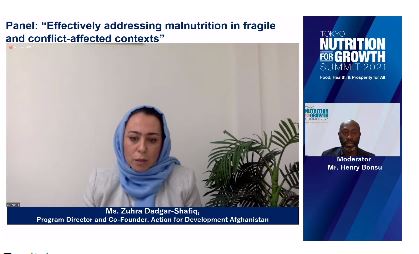
Do you feel that food systems support you as a woman?
Women have a prominent role all across the value chain of the food system, for instance as farmers and food producers, merchandisers, educators, cooks, servers, and leaders of food organizations. Food systems enhance women participation and benefits they receive through improved access to resources and innovative technologies and practices. Food systems empower women, improve their nutritional status, and helps them in their contribution to the household’s financial security. Women’s roles are enhanced, for instance, by increasing their involvement in specific roles or stages of the value chain, such as processing or marketing, and expanding opportunities for women. When women are able to engage more directly or more extensively in these activities, they can increase their contributions to household incomes and resources. Moreover, there is a growing recognition that transforming food systems for inclusion means not just ensuring women’s participation and access to benefits but also their empowerment to make strategic life choices (1).
How do you think global food systems could be improved?
In addition to make global food systems more inclusive to ensure maximum benefits to the society and to improved nutritional status or women and their households, global food systems must be sustainable. It is important to invest in practices that make food systems resilient. Unsustainable practices in our food systems threaten both human and planetary health, with hunger and malnutrition rising, poor diets are the leading cause of poor health worldwide. With a growing population, changing diets and high levels of food loss and waste, food production is exerting increasing pressure on the earth, contributing to climate change and biodiversity loss. One strategy to improve food systems can be through the reduction of food waste, by reviewing food and agricultural policies to ensure that programs and support systems are inclusive of a diverse range of food and agricultural operations across different scales, production practices and market channels, particularly those that promote sustainable practices (2). In addition, establishing supports and training opportunities for farmers and fishers to transition to more agro-ecology production regimes, including significant new support for new entrants and public funding for farmer-led R&D in organics and knowledge transfer.
In summary global food systems can be improved through certain strategies such as:
- Ensure women are including in several aspects of the food system
- Promote sustainable practices such as reduction in food waste, safe and sustainable agricultural practices
- Capacity building and training for farmers
- Protecting farmers livelihoods
- Increase political commitment and finance to fight hunger
- Ensure access to agricultural technologies in low and middle income countries
(1) Quisumbing, A., Heckert, J., Faas, S. et al. Women’s empowerment and gender equality in agricultural value chains: evidence from four countries in Asia and Africa. Food Sec. 13, 1101–1124 (2021). https://doi.org/10.1007/s12571-021-01193-5
(2) https://foodsecurecanada.org/policy-advocacy/five-big-ideas-better-food-system

